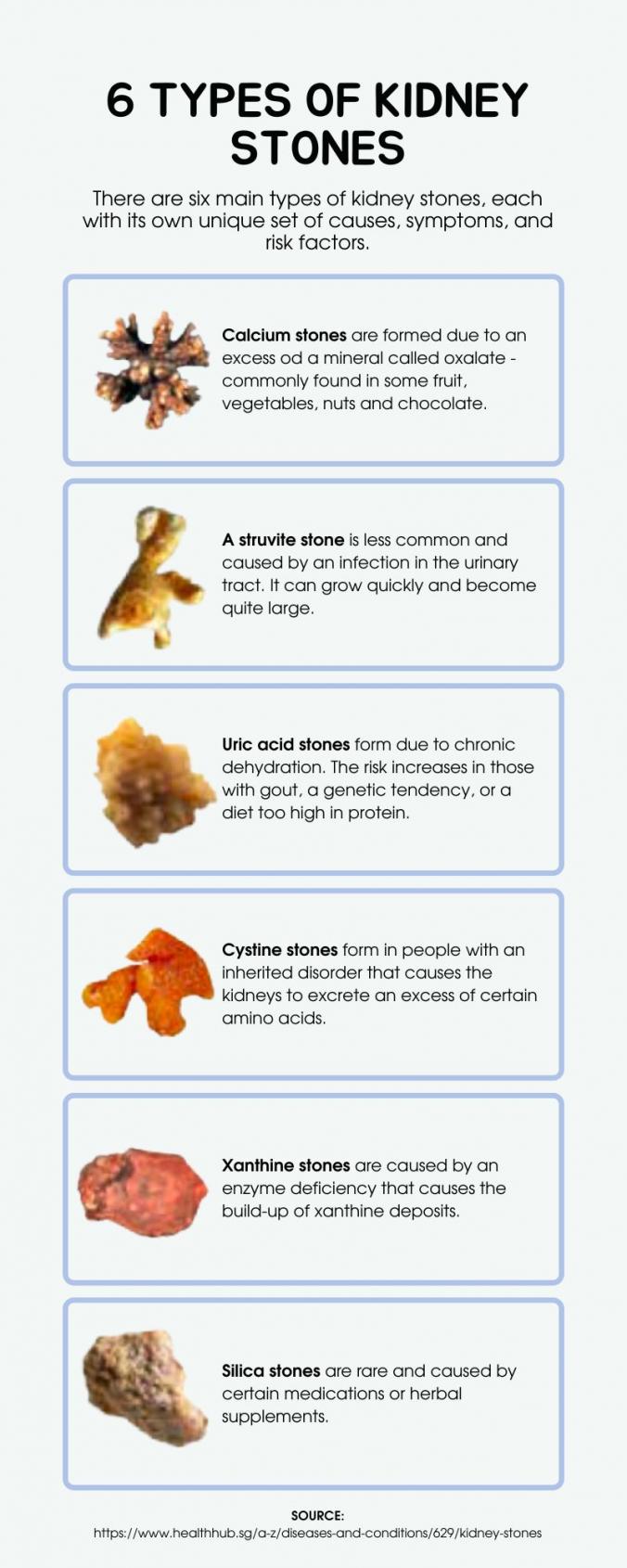6 Types of Kidney Stones There are six main types of kidney stones, each with its own unique set of causes, symptoms, and risk factors. The most common type of kidney stone is the calcium oxalate stone, which is caused by a buildup of calcium and oxalate in the urine. Calcium oxalate stones are more likely to occur in people who have a diet high in animal protein, salt, and sugar, and who don't drink enough fluids. The second most common type of kidney stone is the uric acid stone, which is caused by a buildup of uric acid in the urine. Uric acid stones are more likely to occur in people who have a diet high in animal protein and who don't drink enough fluids. The third most common type of kidney stone is the struvite stone, which is caused by a buildup of struvite in the urine. Struvite stones are more likely to occur in people who have a urinary tract infection. The fourth most common type of kidney stone is the cystine stone, which is caused by a buildup of cystine in the urine. Cystine stones are more likely to occur in people who have a genetic disorder that causes their bodies to excrete too much cystine. The fifth most common type of kidney stone is the calcium phosphate stone, which is caused by a buildup of calcium and phosphate in the urine. Calcium phosphate stones are more likely to occur in people who have a diet high in animal protein and who don't drink enough fluids. The sixth and least common type of kidney stone is the infection stone, which is caused by a buildup of bacteria in the urine. Infection stones are more likely to occur in people who have a urinary tract infection. If you have been diagnosed with kidney stones, it is important to consult with a specialist doctor for proper treatment. In some cases, kidney stone removal may be necessary.


